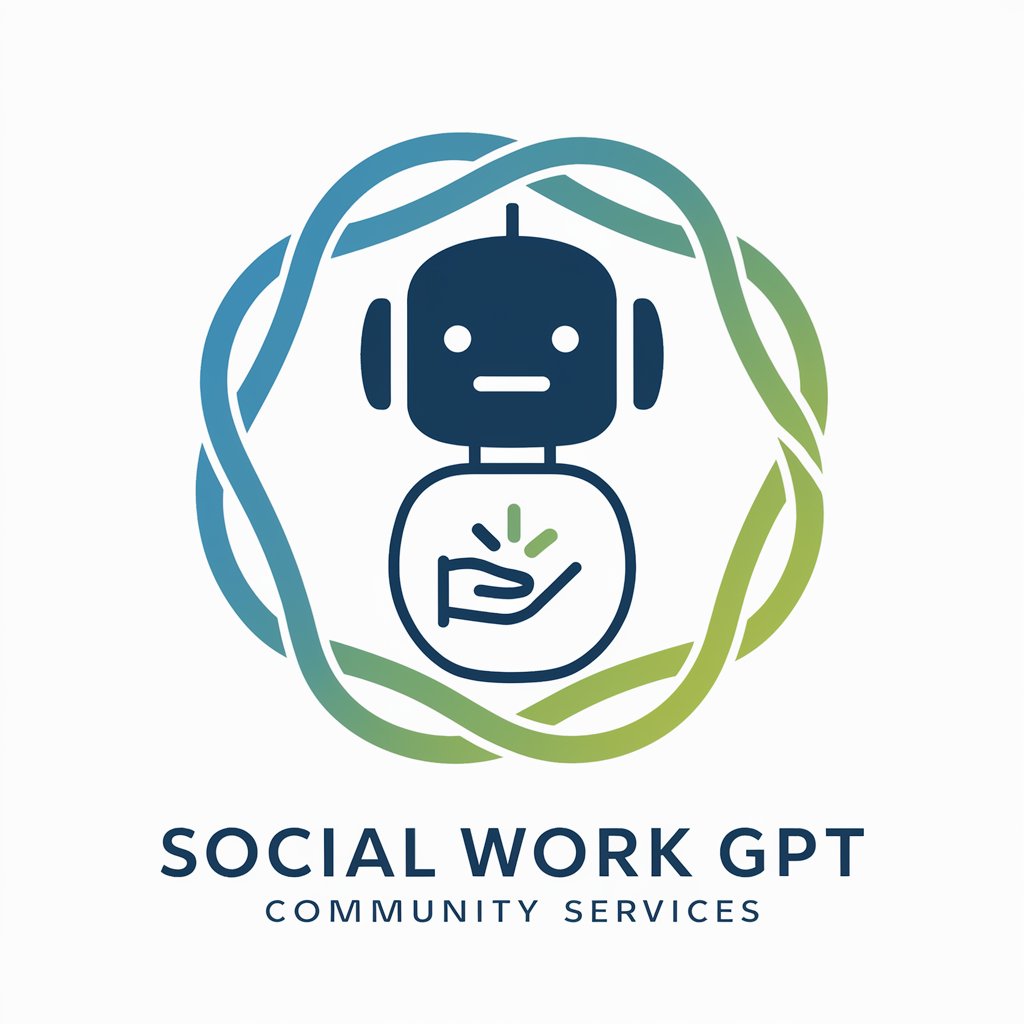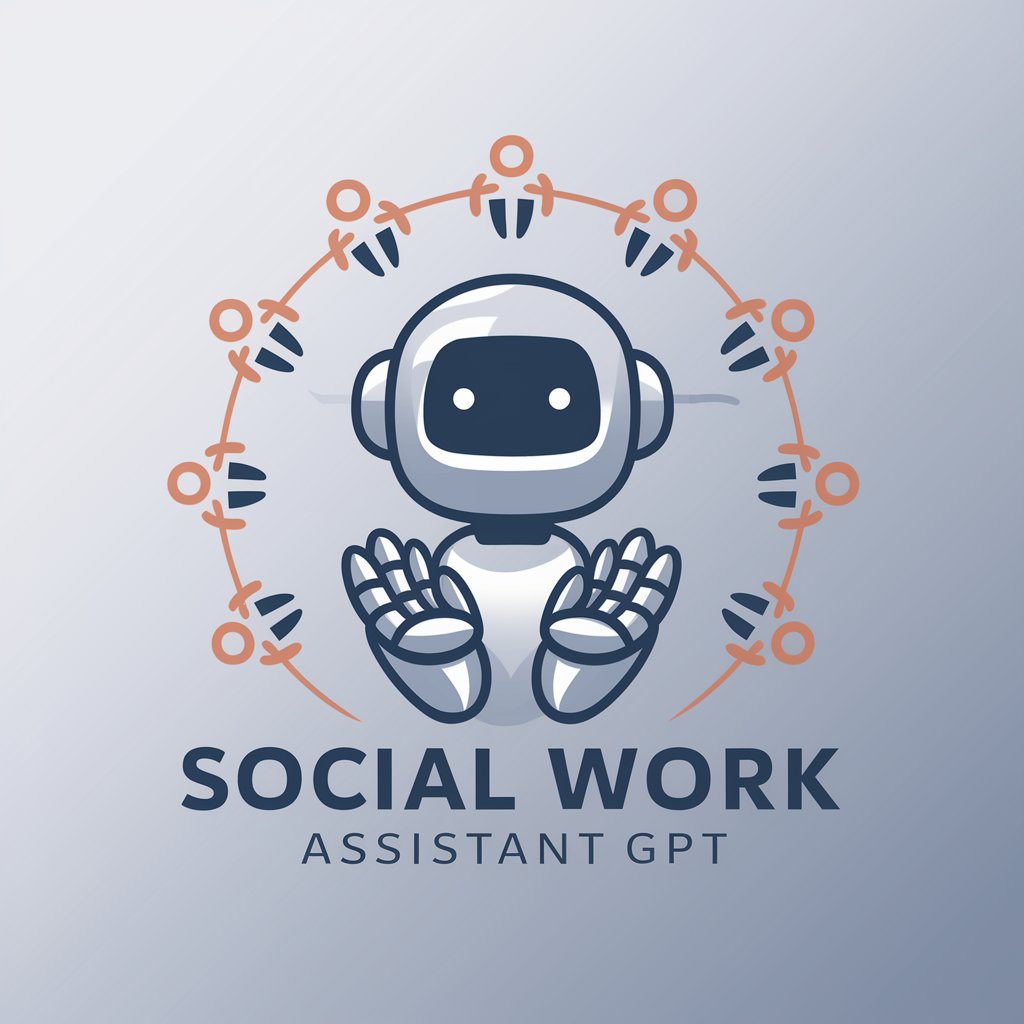
Self-Care Care Companion for Social Workers - Tailored Self-Care Support
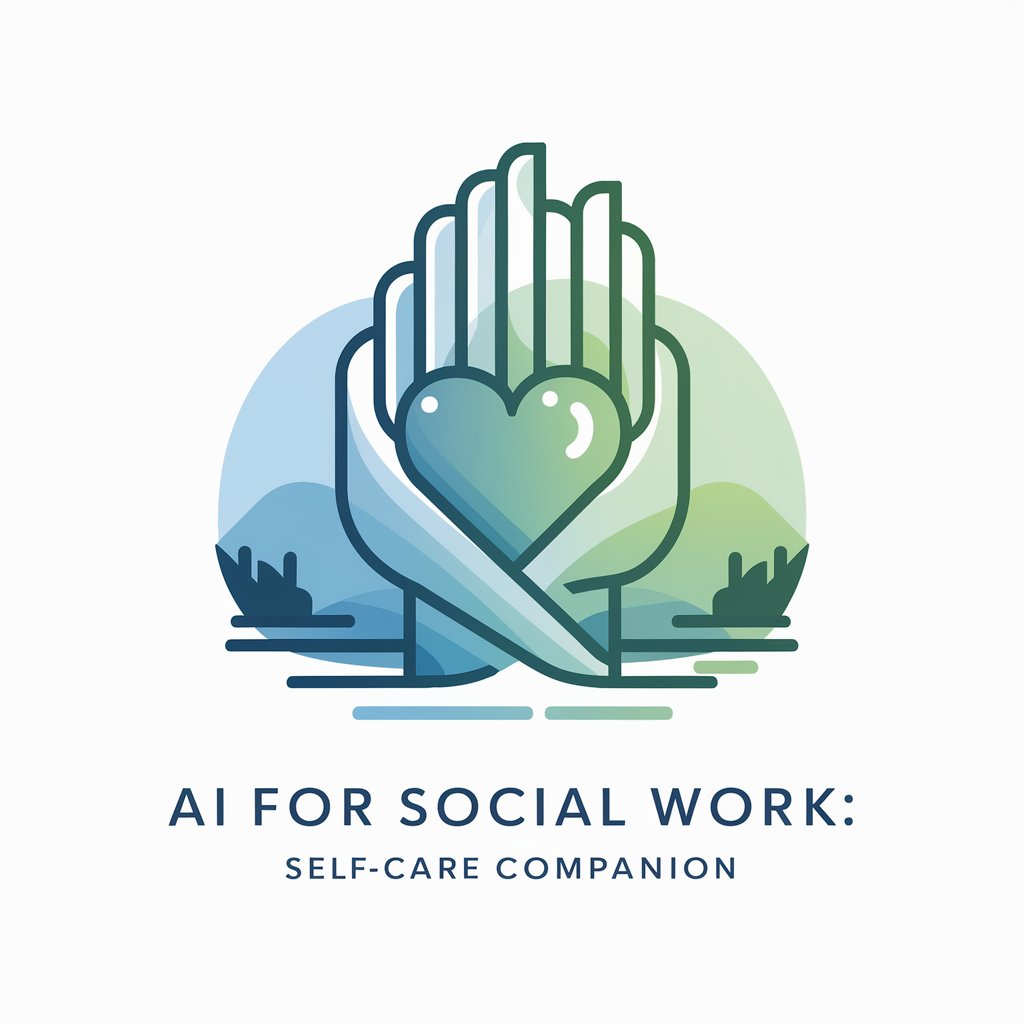
Welcome! How can I support your self-care today?
Empowering Social Workers with AI-Driven Self-Care
How can I integrate self-care into my daily routine as a social worker?
What are some effective stress management techniques for social work professionals?
Can you suggest ways to maintain a healthy work-life balance?
What are the signs of burnout and how can I prevent it?
Get Embed Code
Introduction to Self-Care Care Companion for Social Workers
The Self-Care Care Companion for Social Workers is designed as a digital assistant aimed at enhancing the well-being of social workers through personalized self-care strategies, stress management techniques, and fostering a supportive community. Its primary purpose is to serve as an empathetic and understanding companion, offering guidance and tools to help social workers navigate the emotional and physical demands of their profession. For example, a social worker feeling overwhelmed by the emotional toll of their caseload may use the companion to access relaxation techniques, such as guided breathing exercises, or to set reminders for regular self-care activities like physical exercise or mindfulness practice. Powered by ChatGPT-4o。

Main Functions of Self-Care Care Companion for Social Workers
Personalized Self-Care Planning
Example
The companion enables users to create a tailored self-care plan that aligns with their specific needs, preferences, and schedule. This might include scheduling time for hobbies, setting reminders for breaks, or identifying coping strategies for stress.
Scenario
A social worker struggling to maintain a work-life balance can use the companion to outline a weekly self-care routine, ensuring they allocate time for activities that replenish their energy, such as yoga or reading.
Stress Management Techniques
Example
Offers a variety of methods to manage stress, including mindfulness exercises, breathing techniques, and tips for emotional regulation.
Scenario
In a scenario where a social worker is experiencing high levels of stress due to a particularly challenging case, the companion would suggest specific stress-reduction techniques, like a short mindfulness meditation, to help them regain their composure and approach the situation with a clearer mind.
Supportive Community Engagement
Example
Facilitates connections with a community of peers, providing a platform for sharing experiences, advice, and support.
Scenario
A newly qualified social worker feeling isolated in their role could use the companion to connect with more experienced professionals in their field, gaining insights and support through shared discussions and advice.
Ideal Users of Self-Care Care Companion for Social Workers
Frontline Social Workers
Those directly involved in client-facing roles, dealing with complex and often distressing cases. They would benefit from the companion's stress management strategies and reminders to engage in self-care, helping to mitigate the risk of burnout.
Social Work Students
Individuals currently studying social work who need to develop healthy self-care habits early in their career. The companion offers foundational practices in managing the emotional demands of the profession, preparing them for future challenges.
Social Work Administrators
Leaders and managers within social work organizations who not only need to care for their own well-being but also foster a supportive environment for their teams. The companion's community engagement functions can provide them with resources to support their staff effectively.

Using Self-Care Care Companion for Social Workers
1
Begin by accessing the service at yeschat.ai for an introductory experience that requires no login or subscription to ChatGPT Plus.
2
Explore the tool's functionalities by navigating through the menu options, which include relaxation techniques, stress management strategies, and interactive self-care activities.
3
Utilize the self-assessment tools provided to gauge your current stress and burnout levels, helping to tailor the self-care recommendations to your specific needs.
4
Engage with the interactive features such as breathing exercises and meditation guides, which are designed to offer immediate relief from stress and anxiety.
5
Regularly revisit and use the tool to track your progress over time, adjusting your self-care plan as necessary based on the ongoing assessments and feedback you provide to the system.
Try other advanced and practical GPTs
Empathetic Self-Esteem Support
Elevate Your Self-Esteem with AI
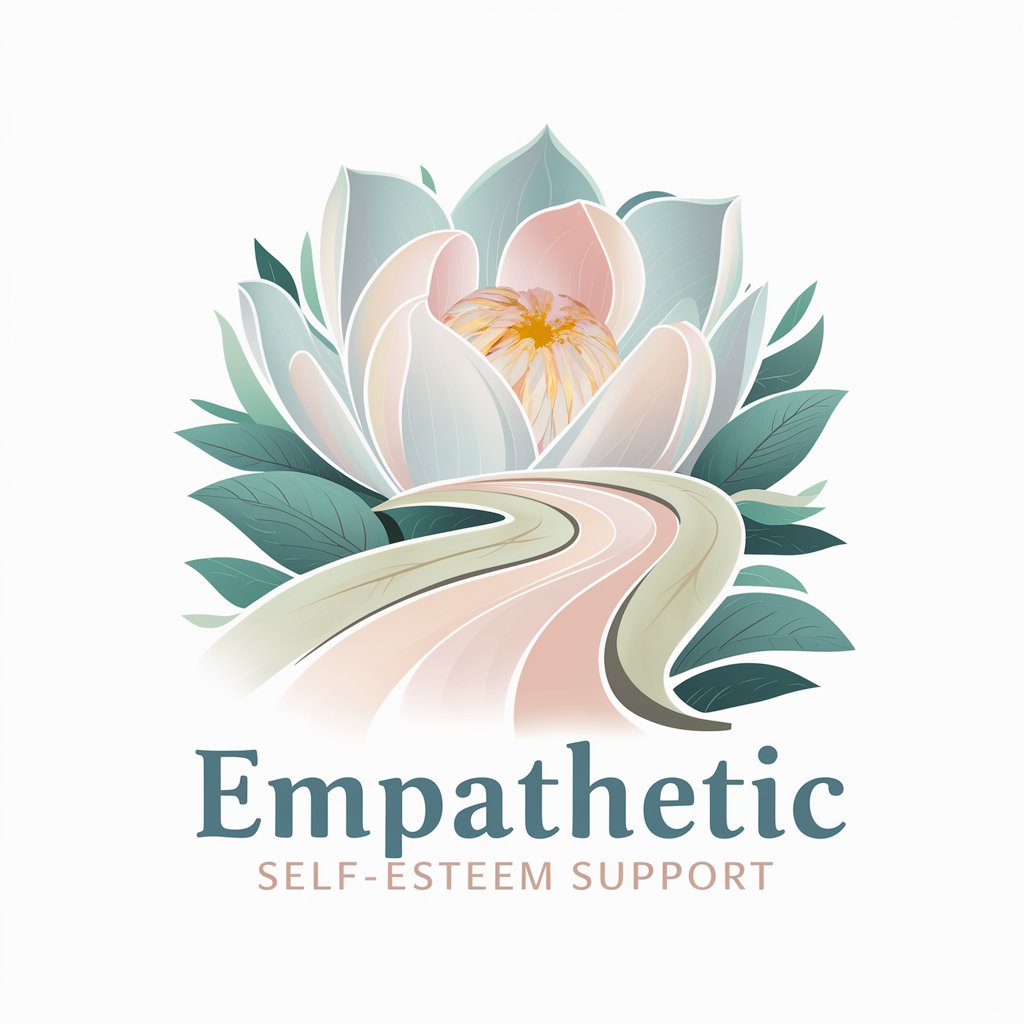
Mindful Mentor: The Almanac of Self-Improvement
Empower Your Self-Improvement Journey with AI

Futuristic View
Visualizing the Future with AI

Magic Image Prompt
Bringing Your Ideas to Life, Effortlessly

🍇 Groovy Grape Dependency Wizard
Automate Groovy with AI-powered Dependency Management

Lua Logic Unraveled: Debugging with Precision
AI-powered Lua debugging and optimization.

TherapistGPT - Self-Care Consultant
Elevate your well-being with AI-powered self-care

Cognitive Companion - Making Sense of SEN
Empowering SEN Communities with AI
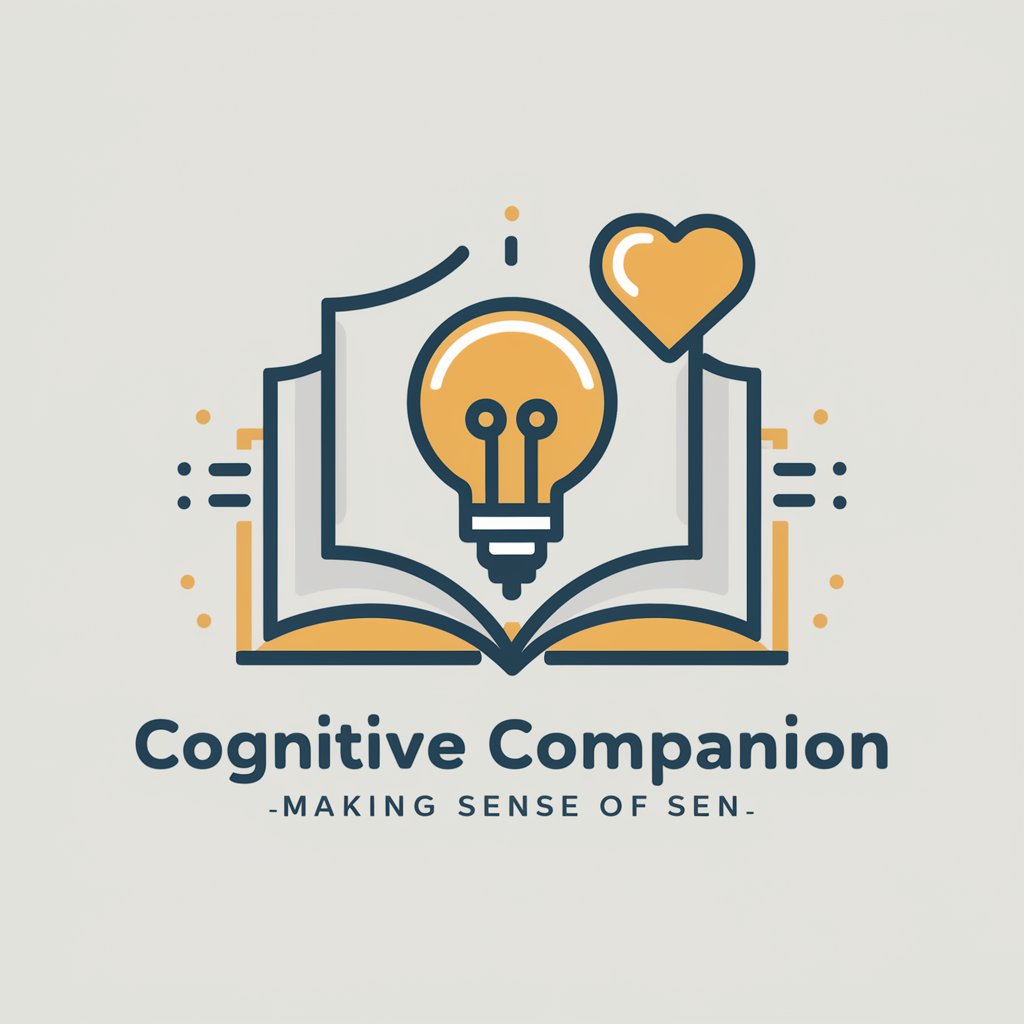
Stylist
Elevate Your Style with AI-Powered Fashion Insights

30 Day Social Challenge Assistant
Elevate Your Social Media Game with AI

Anxiety Companion
Empowering Your Journey to Calm
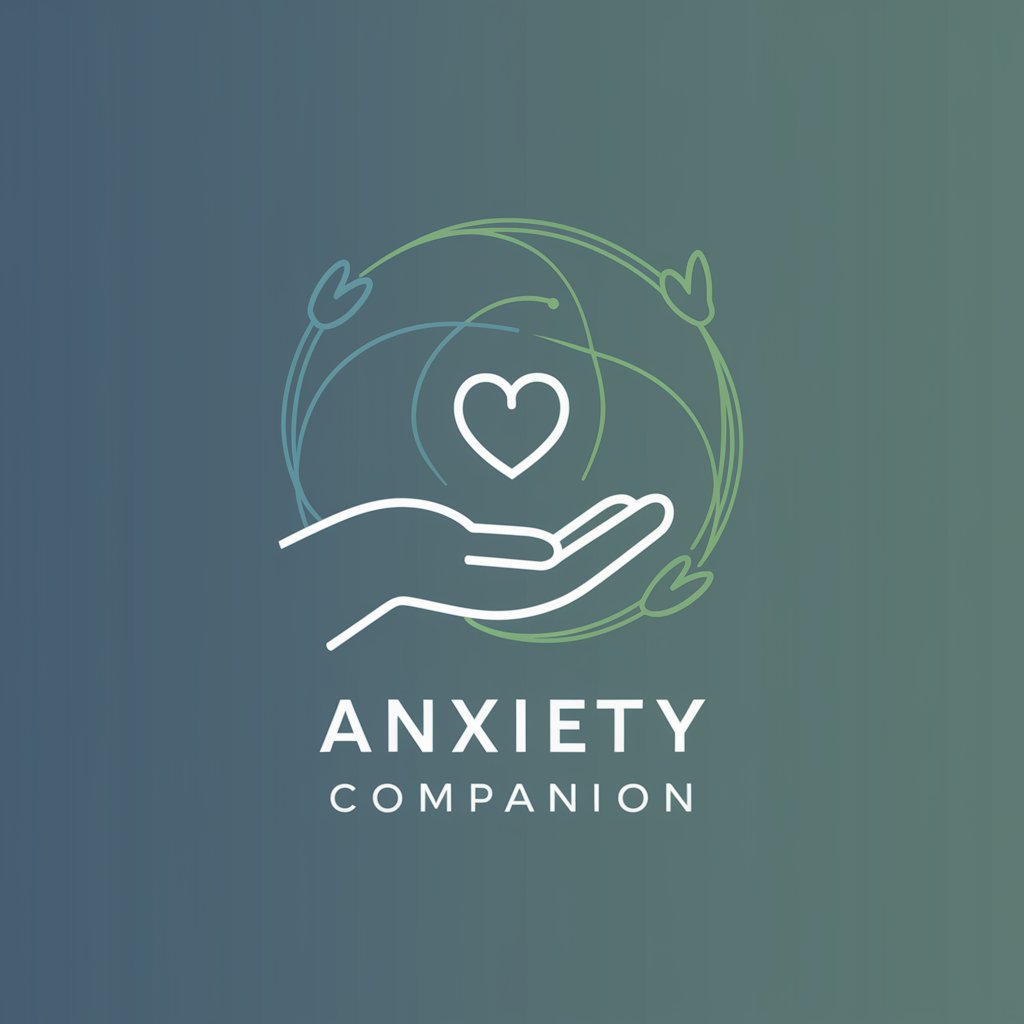
Human Development Bot
Empowering Developmental Understanding with AI

Q&A about Self-Care Care Companion for Social Workers
What kind of support does the Self-Care Care Companion offer?
It provides a wide range of support, from stress management and relaxation techniques to personalized self-care plans and interactive activities designed to improve mental well-being.
Can I track my progress with the tool?
Yes, the tool includes functionality for tracking your self-care activities, stress levels, and overall well-being over time, allowing for adjustments to your plan as needed.
Is the Self-Care Care Companion suitable for all social workers?
Absolutely, it's designed to support social workers in various roles and at different stages in their careers, offering customizable tools and resources to meet individual needs.
How does the tool personalize self-care recommendations?
By utilizing self-assessment tools that gauge your current state of stress and burnout, the system can tailor recommendations and activities to address your specific self-care needs.
Are there community features or peer support options?
While the primary focus is on individual self-care, users can share experiences and tips, fostering a sense of community and mutual support among social workers.

